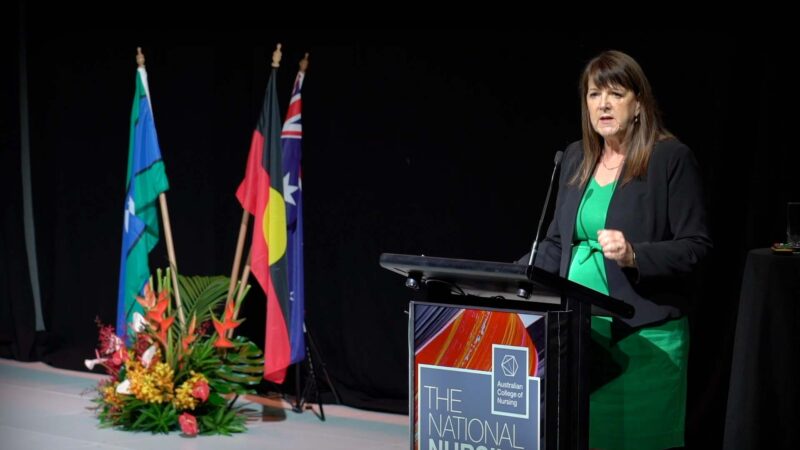Avoiding unplanned readmission into hospital is important. A significant proportion of hospital readmissions are avoidable and vulnerable groups, such as older people, are disproportionally affected by unplanned readmissions. Unplanned readmissions are associated with poorer health outcomes, lower satisfaction with healthcare, and increased health system costs.
The transition process between hospital and home is risky for the patient, however it is also a phase where patients may not necessarily need the intensity of a hospital bed, nor might patients actually want to remain in hospital especially if the same level of patient safety could be assured in the patient’s own home.
Tracey Johnson is the CEO of Inala Primary Care, a not-for-profit general practice located in Inala serving approximately 7000 patients; 4400 of whom attend clinic regularly. Inala is a suburb of Brisbane, Queensland and has a population of great cultural and linguistic diversity, with just under 40% of residents speaking English at home. It is also one of Queensland’s most socioeconomically marginalised urban areas.
Australian Health Journal spoke with Tracey on the role of Inala Primary care in reducing hospital admissions.
The delivery of care in a culturally and linguistically sensitive manner across all levels of the healthcare system is seen as deficient. In an effort to improve healthcare access and equity, Inala Primary Care and the Mater Integrated Refugee Health Service (MIRHS) co-developed the Mater Culturally & Linguistically Diverse Healthcare Coordinator Service (MCHooSe).
Commonly delivered services included following up with external health services, chart reviews and helping patients coordinate external health care appointments. Surveys of primary care clinicians (GPs and practice nurses) revealed that MCHooSe improved patient access to external health services and improved patient understanding of their treatments.
The data also revealed that the primary care clinicians felt the patients’ wellbeing improved after their patients had access to the service and that patients were more likely to be compliant with attendance and treatments. Most importantly, primary care clinicians said they received communications from the hospital quicker if MCHooSe was involved.
In combination, these factors are known to reduce the risk of hospital readmissions. MCHooSe highlights the potential to improve hospital outcomes through better healthcare coordination and improved healthcare equity for multicultural patients.
Tracey also talks about the outcomes of non-dispensing pharmacists in general practice in a pilot running at Inala Primary Care. Prior health research has shown the integration of non-dispensing pharmacists in the general practice clinic has significantly reduced emergency department presentations and hospital readmissions in certain patient groups (long-term polypharmacy suffering from congestive heart failure or chronic obstructive pulmonary disease).
As part of the pilot, pharmacists are working towards averting hospital readmissions, new hospital presentations and adverse health outcomes. Formal evaluation of the pilot is currently being completed by Brisbane South PHN and Griffith University.
You Might also like
-
Improving access to osteopathic services and integrated care models
The Chief Executive Officer of Osteopathy Australia, Antony Nicholas spoke with Australian Health Journal about:
– Involvement in the Strengthening Medicare Task Force
– The unique skills osteopaths have that can address the chronic disease burden
– Current workforce issues around osteopaths and if enough are coming through via student placements
– How uploading data to My Health Record by osteopaths could assist team-based care of patients
– How the value of osteopaths in Residential Aged Care Facilities (RACFs) could be better understood and better access for residents
– The recommendations around aged care access to allied health services, including osteopathy
– The recommendations around consumer access to osteopaths and GP referrals
– Other osteopathy recommendations in the upcoming Federal BudgetIn the lead up to the Australian Federal Budget in May 2023, Australian Health Journal reached out to peak health industry bodies to hear about their priorities, either noted in pre-budget submissions lodged with Federal Government in January 2023 or in recent forums such as the Strengthening Medicare Taskforce.
-
Role of the Chief Nursing Officer
Professor Alison McMillan PSM spoke with Australian Health Journal about the role of Chief Nursing and Midwifery Officer at the Australian Government Department of Health and Aged Care.
Alison was appointed as our Chief Nursing and Midwifery Officer in November 2019.
In June 2021 Alison was awarded a Public Service Medal for outstanding public service to driving the Government’s national health response priorities during the COVID-19 pandemic, particularly to infection prevention measures.
-
Report: Youth pathways to health services
The 2020 Youth Health Forum (YHF) was created to make young people’s ideas and experiences part of our national discussions about services for young Australians.
Healthcare professionals across Australia have long recognised the problem of young people falling through the gaps of a health system that wasn’t designed for them.



